Animals
-
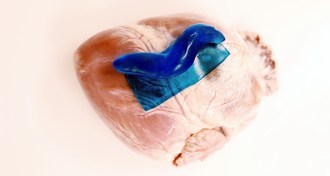 Materials Science
Materials ScienceSlug slime inspires a new type of surgical glue
A new glue that mimics a slug’s mucus secretions sticks well, even when wet. The adhesive could be used in place of sutures or staples in surgeries.
-
 Anthropology
AnthropologyReaders question hominid family tree
Readers sent feedback on hominid origins, fast cameras, slimy sea creatures and more.
-
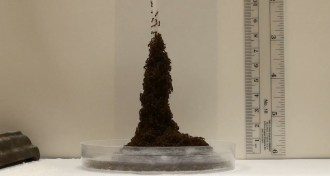 Animals
AnimalsFire ants build towers with three simple rules
Fire ants use the same set of simple rules to produce static rafts and perpetually moving towers.
-
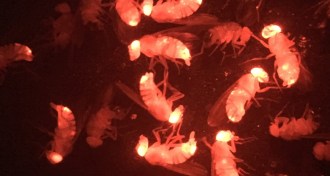 Genetics
GeneticsResistance to CRISPR gene drives may arise easily
New tools for pest and disease control could become useless without improvements.
-
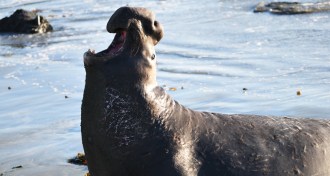 Animals
AnimalsElephant seals recognize rivals by the tempo of their calls
The distinct sputtering-lawnmower sound of a male elephant seal’s call has a tempo that broadcasts his identity to competitors.
-
 Genetics
GeneticsThese genes may be why dogs are so friendly
Dog domestication may be the result of just a few genetic changes, including ones that made canines more interested in interacting with people.
-
 Genetics
GeneticsDog domestication happened just once, ancient DNA study suggests
DNA of ancient canines counters idea that dogs were domesticated twice, in Europe and Asia.
-
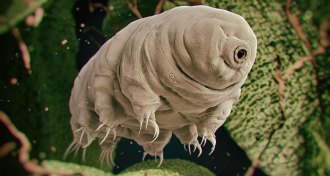 Animals
AnimalsWater bears will survive the end of the world as we know it
Water bears have a till-death-do-us-part pact with the sun, study suggests.
-
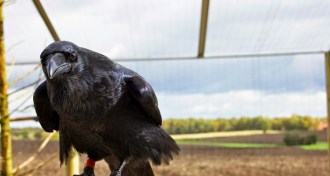 Animals
AnimalsRavens pass tests of planning ahead in unnatural tasks
Clever birds may have evolved their own broad powers of apelike thinking about the future.
By Susan Milius -
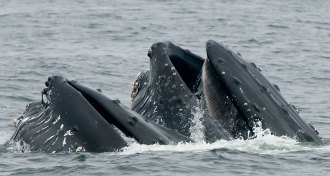 Animals
AnimalsWhales feast when hatcheries release salmon
Whales: “They’re 40 feet long and they’re feeding on fish that are the size of my finger.”
By Susan Milius -
 Genetics
GeneticsDNA evidence is rewriting domestication origin stories
DNA studies are rewriting the how-we-met stories of domestication.
-
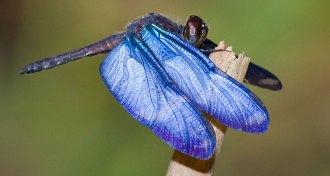 Animals
AnimalsThe blue wings of this dragonfly may be surprisingly alive
The wings of adult morpho dragonflies show tiny respiratory channels that may support a complex of nanostructures that shine blue.
By Susan Milius